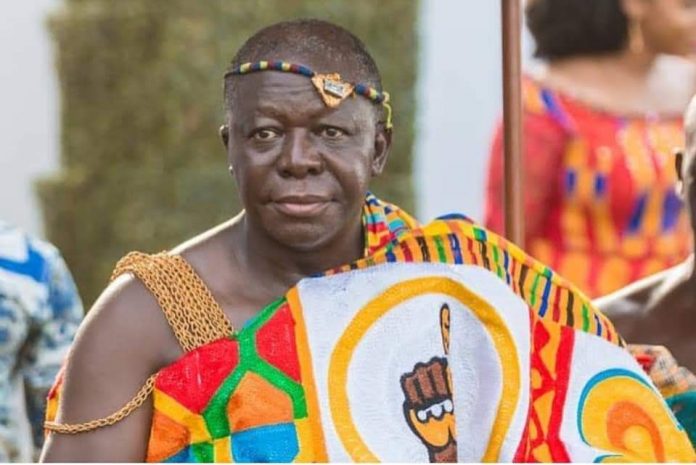Otumfuo Osei Tutu II has alleged that Osagyefo Dr. Kwame Nkrumah, the first President of Ghana did not like the people of the Ashanti Region.
Speaking at the first Asanteman Council Meeting for the year at the Manhyia Palace in Kumasi on Monday, the overlord of the Asante Kingdom acknowledged that, even though Nkrumah did not like them [Asantes], he carved the Bono Ahafo region out of Western Ashanti.
He said, the new region Nkrumah created at that time, did not alter the existence of the traditional arrangement, therefore, the creation of the Bono region cannot affect the traditional autonomy of the Asante Kingdom.
He indicated that the authority and autonomy of Asanteman has never been in dispute, adding, new political-administrative regions do not alter existing traditional arrangements.
Otumfuo noted that similar moves in the colonial and post-independence era could not alter the already existing Asanteman.
He, however, stated emphatically that, no chief should consider the existing arrangement null, due to the creation of new regions.
The Asanteman Council is an assembly of paramount chiefs from Ashanti, Bono East and Bono regions that pay homage to the Golden Stool. Other chiefs are from the Ahafo, Eastern, Western, Western North and Oti regions.
“Government recently created the Bono, Bono East and Ahafo regions. Before this, a similar incident happened during the regime of Dr. Kwame Nkrumah. He carved the Bono Ahafo region out of Western Ashanti.
“Even Kwame Nkrumah, who didn’t like us at that time, acknowledged that the creation of new regions was not meant to alter existing traditional arrangements and that the creation of new regions was to facilitate development at the local level and also promote governance.
“The creation of Bono Ahafo didn’t mean all chiefs who hitherto paid allegiance to the Golden Stool could not do so,” he said.
Background
Oseadeeyo Agyemang Badu II, in a viral Facebook video sighted by GhanaWeb, stated that history has been distorted by the Asante’s to suit their interest.
He said, some chiefs in Ghana talk as if they are greater than the Almighty God but “nobody is greater than God.”
Going into history, Oseadeeyo Agyemang Badu II said, in the year 1640, the then chief of Akwamu, Ansa Sasraku, was going about saying when he dies, none of the twins of his sister can succeed him; this continued for a while till he died and it happened that there was confusion among the citizenry.
Dormaahene said, amid the confusion, the people of Kumawu took over some territories across the country and even extended to Côte d’Ivoire but “when they got to present-day Asante, that territory was under the Denkyirahene. Today they have an appellation as ‘asante kotoko kum apem a apem beba’ [if you kill thousand, thousand will come] but do you know that of the people of Bono, theirs is ‘abono kyen apem’ [Bonos are more than thousand]”
Oseadeeyo Agyemang Badu II explained, “this means that, when we got to Denkyira, Dormaahene had his territory; so the two were not fighting each other, our brothers from Asante – they were a group of people who had come together – but they broke away from Ntim Gyakari…and decided to fight the people of Dormaa because they were defeated six times…
“…We beheaded their chief and his head is still with the people of Dormaa…it took the people of Dormaa 250 years before they came to settle at Dormaahenkro but no chief was able to defeat the chief of Dormaa, because you don’t read your history you don’t know.
“You have fallen for the history that Okomfo Anokye planted a tree both in Asante and Kumawu and because the tree died that is why the place is called Kumawu; that is a lie. When we talk about Kumasi, it means that they were labourers. When we got to the place known as Asante today, the people of Kumasi were under Denkyira and they were responsible for getting Denkyirahene firewood that is ‘akuma ase’ but today, because of their population, they have changed it. It means ‘akuma ase hene’ and not Kum. If you are a chief and you are brilliant and you know the law, people are afraid of you…,” Dormaahene stressed.

















![EC Announces Elimination of Indelible Ink in Upcoming Elections [Video]](https://newsonghana.com/wp-content/uploads/2023/12/image-351-218x150.png)






































